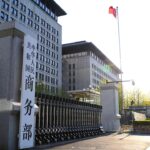The US decision to grant indefinite waivers for South Korean chipmakers Samsung Electronics and SK Hynix to supply US chip gear to their factories in China reflects the growing limitations Washington faces in its chip war against China, as Chinese companies make steady breakthroughs, Chinese experts said.
Citing South Korea’s presidential office and the companies, Reuters reported on Monday that the two South Korean companies will be allowed to supply US chip equipment to their plants in China indefinitely without nods from the US government.
In a statement sent to the Global Times on Monday, SK Hynix confirmed that the US has designated the company’s Chinese factory as a “validated end user,” saying that the company welcomes the decision, which will help contribute to the stabilization of the global chips supply chain.
The wavier is crucial for both companies, as they make many of their chip products at their Chinese factories. Samsung makes about 40 percent of its NAND flash chips at its plant in Xi’an, Northwest China’s Shaanxi Province, while SK Hynix makes about 40 percent of its DRAM chips in Wuxi, East China’s Jiangsu, and 20 percent of its NAND flash chips in Dalian, Northeast China’s Liaoning Province, according to Reuters.
It’s not yet clear what the move means for the intensifying US campaign to ban the sales of advanced equipment and chips to China, said Gao Lingyun, an expert at the Chinese Academy of Social Sciences in Beijing.
“If the companies are only allowed to make chips that we can make on our own, then this is not significant; but if it is possible for them to produce more sophisticated products, this is worth paying attention to,” Gao told the Global Times on Monday.
With the waivers, the two companies are allowed to keep supplying “certain US chip-making tools to their China factories,” Reuters reported, citing South Korea’s presidential office.
Still, the move shows Washington’s limitations in its chip war against China, given the profound damage they cause to the chipmakers in the US and its allies, as well as China’s steady technology breakthroughs, experts noted.
“Clearly, the US was forced to make this decision, as it has no other choice because its previous policies have backfired,” Ma Jihua, an industry analyst based in Beijing, told the Global Times on Monday.
While the US will never publicly admit its mistakes, the fact is that the country’s chip restrictions have harmed its own companies.
In the case of the two South Korean chip firms, given Chinese companies’ breakthroughs and capabilities in memory chips, “if the US continues to restrict SK Hynix and Samsung, it means the two companies would have to completely withdraw from the Chinese market and will ultimately be eliminated,” Ma said.
Following what appears to be a major breakthrough by Chinese telecom giant Huawei in chips used in its latest high-tech smartphones, US politicians are crying out for even stricter chip restrictions. However, they also face growing opposition from many US chipmakers.
The New York Times reported on Thursday that, in recent months, Nvidia, Intel and Qualcomm, three of the world’s largest chipmakers, pushed back against the US government’s plan to impose additional restrictions, warning that “cutting sales to China would gut their businesses and derail the administration’s plan to build new semiconductor factories in the [US].”
The companies also warned that the US restrictions could accelerate China’s independent development in chips, which would pave the way to “a world dominated by Chinese-created chips rather than American-designed chips.”
China’s breakthroughs in terms of technologies and efforts to scale up production, reduce costs and enhance competitiveness are the main factors that will bring about fundamental changes to the dynamics of the chip battle and force the US to adjust policies, analysts said.
“Once the US government feels its policies cannot be continuously carried out or will fail to achieve its intended goals and even backfire, it may find a way that is acceptable to all parties to back out.
“We have already seen this happening [with the waivers for the South Korean firms] and we will definitely see more,” Ma said. “In other words, once we master mature technologies in one area, the US will back down in that area. That is definitely how it will play out.”
(Global Times)



